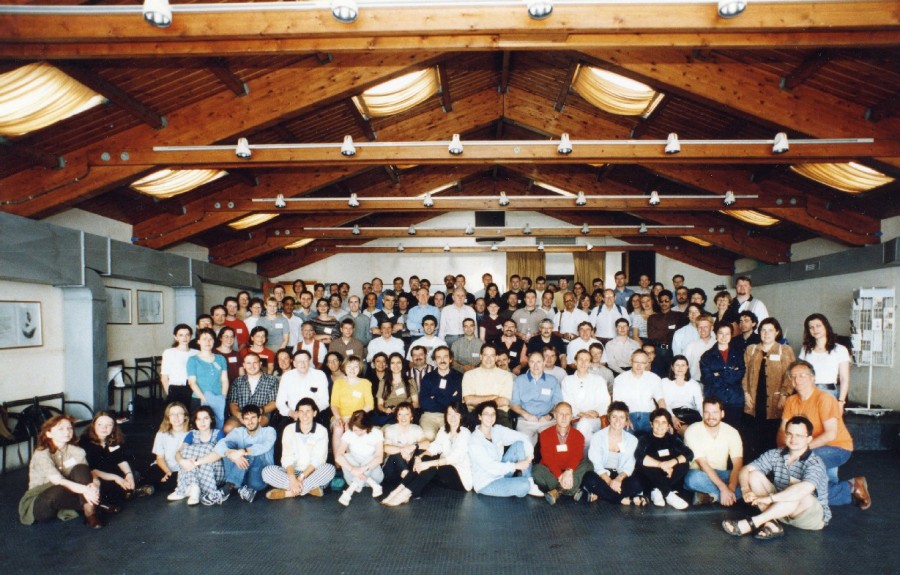Crystal Engineering: From Molecules and Crystals to Materials
12-23 May 1999, Erice, Italy
Director DARIO BRAGA
Dipartimento di Chimica G. Ciamician, Università di Bologna, Italy
Co-Director A. Guy Orpen
School of Chemistry, University of Bristol, Bristol United Kingdom.
The Advanced Study Institute has been a milestone event in the development of what may be termed modern crystal engineering. Though related to previous ASIs held in Erice (1995, 1998) under the auspices of the International School of Crystallography, this NATO ASI has been the first aimed at a coherent approach to crystal engineering as an integrated interdisciplinary area of research. The key idea behind the efforts of the Directors was that of bringing together, in the same arena, students and speakers coming from different fields of research. It was pointed out that the major challenge of the School was having teachers who "do not usually read each other’s papers". Teachers were selected irrespective of traditional subdivisions of chemistry, e.g. organic, inorganic, organometallic, theoretical, materials chemistry and biochemistry. The ambitious objective of the 1999 Erice School on Crystal Engineering was, in fact, that of assisting the establishment and growth of a synergetic interaction (and a common scientific language) between those who are expert in modeling and theoretical evaluations, those who have developed reproducible strategies for crystal synthesis, and those who characterize the products structurally and measure and exploit their physical properties. The NATO ASI resulted in a 500 page book, already in press, which will provide a state-of-the-art description of the field and offer new ideas to young scientists so that this multidisciplinary field will emerge strengthened. All the lectures provoked considerable discussion, with particular interest in the properties of molecular materials and in the understanding of non-covalent bonding. The Directors allowed 30 minutes of discussion after each 60 minute presentation. What might have been a very long time was in practice always easily filled with lively debate and questions from the audience. A series of short talks (20 minutes + 10 minutes discussion) were presented by a mix of student and more senior attendees. The majority of attendees presented posters in three lively sessions that provided an excellent means of introducing their work to the teachers and more senior attendees. In addition, there were 3 parallel sessions of hands-on computer tutorials on the use of the Cambridge Structural Database. The tutorials were run by staff of the Cambridge Crystallographic Data Centre and were set at two different levels of complexity depending on participants previous experience with the CSD. Two round-table discussions were organized on aspects selected from those indicated by the participants as being of particular interest. The topics were (i) "growing crystals" and (ii) "crystal engineering in industry". These provoked extensive debate and participation by both teachers and students.
Altogether the School was attended by 124 participants from 29 Nations; Laura Scaccianoce, (Cambridge) and Christian Zybill, (Jena) were awarded the 1999 Erice Vaciago Prize for the most dynamical "students" in the lecture hall.
One may recognize. sitting on the groud, third Ivet..., and
then last on the right, John Irwin, with
Lodovico behind; the first row in
the center has Fabrizia Grepioni, Dario Braga and Guy Orpen
Note added by the editor: The social highlight of the meeting was the 25th anniversary celebration, as the Internationalò School of Crystallography, at the Ettore Majorana Centre, started in March 1974. A synthetic description of the event, called "La Notte d'Argento", is available.
Posted by Lodovico Riva di Sanseverino, fax +39 051 243336, email riva@geomin.unibo.it changed into fax +39051 2094912 and lodovico.riva@unibo.it later, when he was able to add the photo
